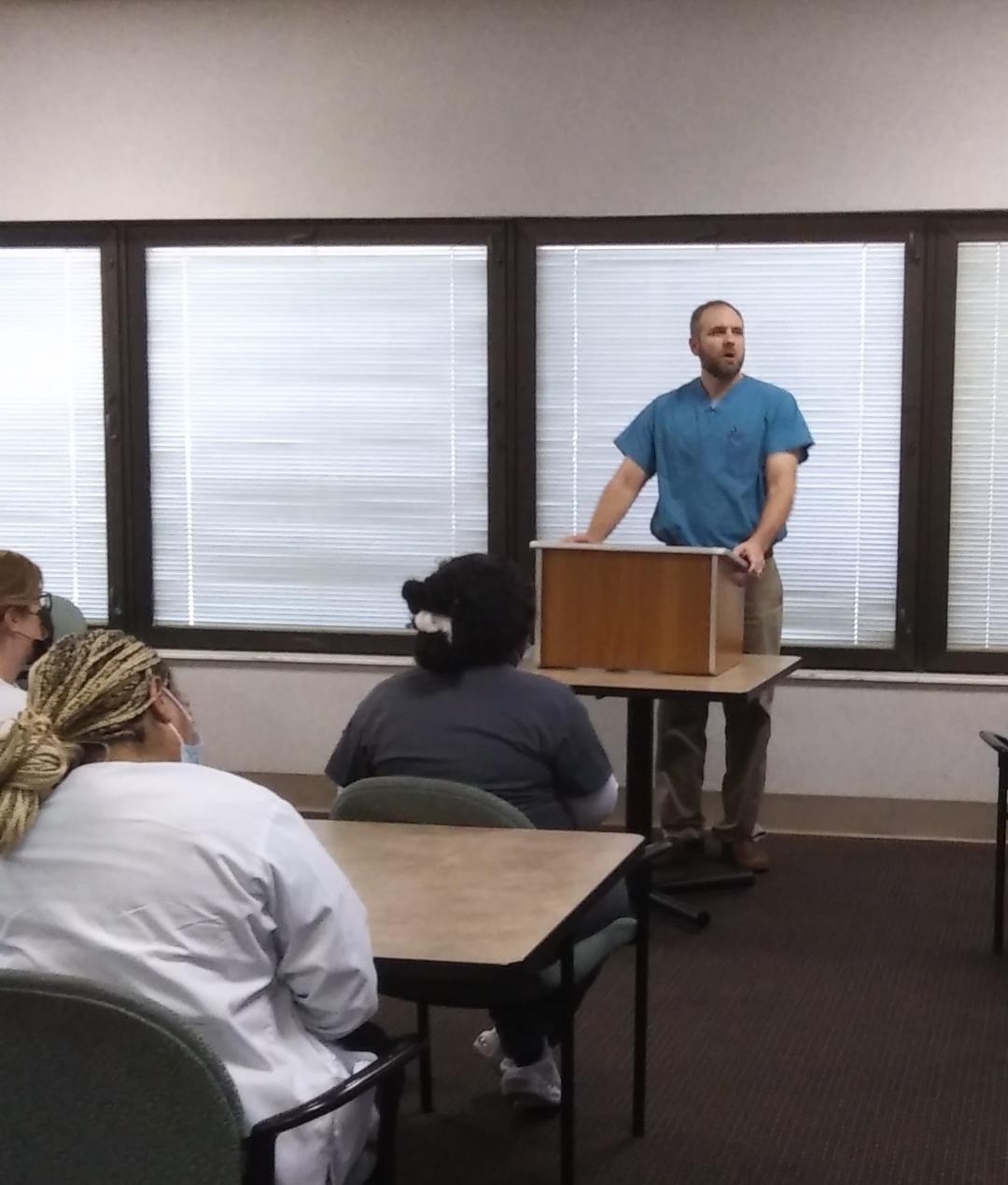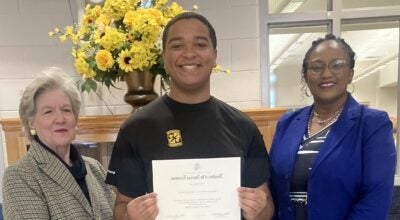The importance of colon cancer screening
Published 12:08 pm Thursday, March 9, 2023
|
Getting your Trinity Audio player ready...
|
Healthy Circle of Greenville hosted a discussion by Dr. Brandon Slagley on March 6, at the Regional Medical Center dining room. The free talk highlighted the importance of Colon Cancer awareness and screening.
The event began at 1 p.m. and was open to the public, said Linda Hummel, the Community Outreach Coordinator for Regional Medical Center.
“We have these health and wellness programs to help us to learn more and educate the men and women in our community to take better care of ourselves so we can care for our loved ones,” said Hummel.
To emphasize Colorectal Cancer Screening Month, Regional Medical Center, along with Healthy Circle, decided it was timely to have Slagley come in and present this discussion.
The whole point of getting screened for colon cancer, Slagley said, was so no one would need to care for a loved one battling colon cancer. In other words, he emphasized, finding cancer early is vital to successful treatment.
“It is one of the few preventable cancers,” Slagley said. “If we do a screening on a screening schedule, then if we find a polyp, we can get it out early.”
Recently, the age for screening shifted from 50 to 45. Slagley explained the shift resulted from a rise in the rate of colon cancer among people below the age of 50.
“Also, if there is a family member, such as a brother, sister, or parent, who has had colorectal cancer, that individual needs to begin screenings 10 years earlier, “ Slagley said.
Slagly also discussed the difference between diagnosing early cancer and preventing cancer.
“There’s a one in 20 chance of getting colon cancer,” Slagley said. “It’s the second leading cause of cancer death, lung cancer being the leading cause. If you catch colon cancer early, and it hasn’t moved out of the colon, there’s a 90% chance that it’s not going to spread. The earlier, the better.”
Slagley recommends a stool test for people interested in checking for colon cancer but who may not want to undergo a medical procedure.
Cologuard is an at-home test that most people are familiar with because of the commercials on TV, Slagley said. But those tests are not foolproof, he noted.
“Those things have a role for sure,” Slagley said. “They’re excellent at catching cancer early, but they’re not excellent at catching polyps. The polyps have to be advanced enough for the test to catch it.”
For answers to questions regarding colon cancer, screenings, or what options might be available in this area, contact Slagley’s office at (334) 382-1632. For questions regarding Healthy Circle and the Health and Wellness Program at Regional Medical Center in Greenville, contact Linda Hummel at (334) 383-2305.





